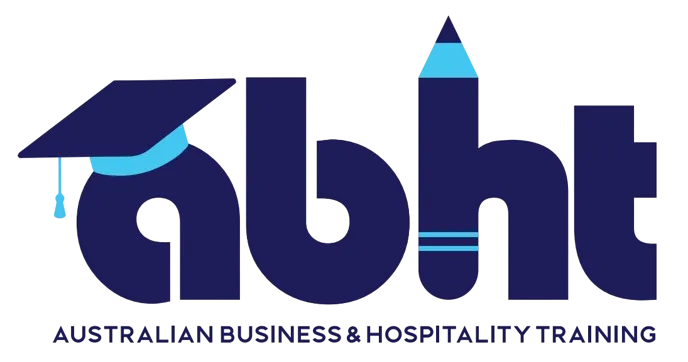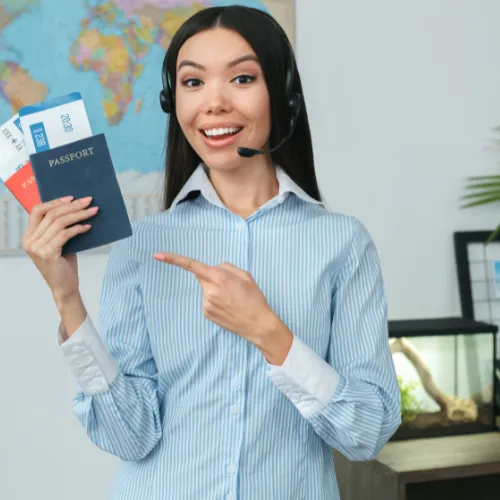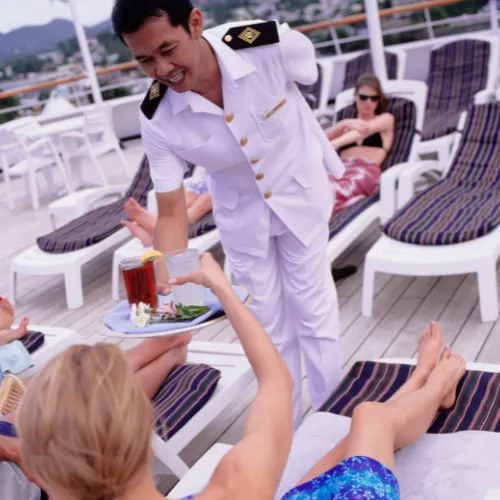SIT40122 - Certificate IV Travel and Tourism
Course Description
If you love exploring new places and creating unforgettable experiences, the Certificate IV in Travel and Tourism is your ticket to a dynamic career in the industry. This course equips you with the skills to design travel packages, manage customer experiences, and coordinate tourism operations—all while staying ahead in this exciting, fast-paced field.
Learn from industry professionals, gain hands-on experience, and develop the confidence to thrive in travel agencies, tour companies, and destination management roles. Whether you're looking to step into leadership or start your own travel business, this qualification opens the door to a world of possibilities.
Your journey starts here—where will it take you?
What will you study?
In a Certificate IV in Travel and Tourism, you'll complete 19 units covering travel sales, customer service, itinerary planning, and tourism operations, equipping you with the skills to manage and deliver exceptional travel experiences.

Course Enrolment:
Anytime

Entry Requirements:
Nil

Course Duration:
12mths
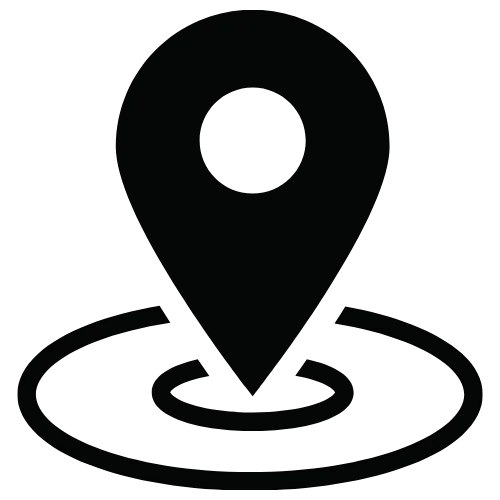
Location:
ABHT are approved to deliver this course nationally via our online platform and can deliver this training face to face in the workplace throughout Metro & SE QLD.

Study Options:
Training can be delivered face to face in the workplace or in a traditional classroom environment. Students can also study within their own schedule using our online platform or combination of face-to-face and online training.

Study Pathways:
Diploma of Travel and Tourism Management
Certificate IV Travel and Tourism Training Plan
Travel and Tourism Industry Knowledge & Skills
SITTIND003 Source and use information on the tourism and travel industry
This unit describes the performance outcomes, skills and knowledge required to source and use current and emerging information on the tourism and travel industry. This includes industry structures, technology, laws and ethical issues specifically relevant to the tourism and travel industry. Tourism and travel personnel integrate this essential knowledge on a daily basis to work effectively in the industry. This unit applies to all tourism and travel sectors and people working at different levels. Managers use more formal research to attain specialised and comprehensive knowledge which supports product planning, marketing and strategic management activities. This is covered within other units of competency. This unit is not about having in-depth knowledge but focuses on the ability to source and interpret information relevant to day-to-day activities in order to maximise performance.
SITXFIN008 Interpret financial information
This unit describes the performance outcomes, skills and knowledge required to interpret financial information and reports used by organisations to monitor business performance and provide information on operational or departmental financial activities. The unit applies to all tourism, travel, hospitality and event sectors. It applies to those people who operate independently or with limited guidance from others. This includes supervisors and departmental managers. This unit does not include the skills required to produce reports for the overall operation of the department or whole organisation. These would be created by senior managers, financial specialists or accountants.
SITXFIN009 Manage finances within a budget
This unit describes the performance outcomes, skills and knowledge required to take responsibility for budget management where others may have developed the budget. It requires the ability to interpret budgetary requirements, allocate resources, monitor actual income and expenditure, and report on budgetary deviations.

SITTTVL001 Access and interpret product information
This unit describes the performance outcomes, skills and knowledge required to access product information about travel products to fulfil sales or operational needs. It requires the ability to identify sources of information and to interpret specific details of the products. The product can include international or domestic products sold by any travel organisation. The breadth and depth of product knowledge and its application will vary according to the industry sector, workplace and job role. This unit is not about having an in-depth knowledge of products, but focuses on the ability to source and interpret information. The unit mainly applies to frontline sales and operations personnel who operate with some level of independence and under limited supervision. It does, however, describe a fundamental operational function and those individuals who work with very little independence under close supervision would also use this skill. This includes travel consultants, inbound tour coordinators, reservations sales agents and owner-operators of small travel organisations.
SITTTVL002 Provide advice on international destinations
This unit describes the performance outcomes, skills and knowledge required to source and provide customer information and advice relating to international destinations and their features. It requires the ability to identify appropriate information sources and research destinations in order to develop and update a general destination knowledge base.
International destinations and their features can include any sold by a travel organisation. Travel operators, such as travel agents and tour wholesalers, can specialise in one international destination or cover multiple destinations.
The breadth and depth of destination knowledge required will vary according to the industry sector, workplace and job role. This unit is not about having an in-depth knowledge of every destination but focuses on the ability to collect and interpret destination information.
SITTTVL003 Provide advice on Australian destinations
This unit describes the performance outcomes, skills and knowledge required to source and provide customer information and advice relating to Australian destinations and their features. It requires the ability to identify appropriate information sources and research destinations in order to develop and update a general destination knowledge base. Domestic destinations and their features can include any sold by a travel organisation. Travel operators in Australia, such as travel agents, tour wholesalers and inbound tour operators, would cover multiple Australian destinations. Visitor information centres and some tour operators would specialise in one region. The breadth and depth of destination knowledge required will vary according to the industry sector, workplace and job role. This unit is not about having an in-depth knowledge of every destination but focuses on the ability to collect and interpret destination information. The unit applies to frontline sales and operations personnel who operate with some level of independence and under limited supervision. This includes visitor information officers, travel consultants, tour operations coordinators, inbound tour coordinators and reservations sales agents.
SITTTVL004 Sell tourism products or services
This unit describes the performance outcomes, skills and knowledge required to proactively sell tourism products and services. It requires the ability to identify specific customer needs, suggest a range of products to meet those needs, provide current and accurate product information and close the sale. The product can include any international or domestic product sold by any travel organisation. The organisation could be a principal (the supplier) or an agent selling products on behalf of the principal. The sale may be made for a single product or multiple products making up a complete package or itinerary. This unit applies to frontline sales or operations personnel who operate with some level of independence and under limited supervision. This includes travel consultants, inbound tour coordinators, reservations sales agents and owner-operators of small travel organisations. The skills in this unit must be applied in accordance with Commonwealth and State/Territory legislation, Australian/New Zealand standards and industry codes of practice. The sale of travel and tourism products is subject to specific regulations under several federal and state or territory pieces of legislation:personnel selling travel insurance to a client must meet the requirements of the Financial Services Reform Act (2001) inbound tour operators (ITOs), irrespective of their location, selling tours that operate within Queensland are subject to the Queensland Tourism Services Act (2003). They must register with the Queensland Office of Fair Trading. This law also applies to tour guides residing anywhere in Australia when working in Queensland and selling local products.

SITXCCS010 Provide visitor information
This unit describes the performance outcomes, skills and knowledge required to access general information on facilities, products and services available in the local area and to provide this to visitors.
The unit applies to frontline service personnel working in a range of tourism, travel, hospitality, events, entertainment and cultural contexts. Information is often provided face-to-face, but may be by telephone or other remote mechanisms.
It applies to frontline service personnel who routinely respond to visitor requests for general local area information. They may be working independently or with guidance from others in restaurants, hotels, wineries, attractions, entertainment venues, tour operations, visitor information centres and at tour desks.

People and Culture
SIRXOSM002 Maintain ethical and professional standards when using social media and online platforms
This unit describes the performance outcomes, skills and knowledge required to source information on, and work according to, a range of ethical and professional standards when using social media and online platforms for business purposes.
This key skill underpins effective performance when utilising social media and online
platforms for diverse purposes. It applies to individuals working at all levels from operational personnel through to managers.
This unit applies to self-employed individuals, and owners and employees of any type of micro, small, medium or large organisation that utilises social media and online tools for customer engagement including commercial, not-for-profit and government organisations.
SITXHRM007 Coach others in job skills
This unit describes the performance outcomes, skills and knowledge required to provide on-the-job coaching to colleagues. It requires the ability to explain and demonstrate specific skills, knowledge and procedures and monitor the progress of colleagues until they are able to operate independently of the coach. The unit applies to experienced operational personnel and to supervisors and managers who informally train other people in new workplace skills and procedures. It applies to all tourism, travel, hospitality and event sectors.
SITXCCS015 Enhance customer service experiences
This unit describes the performance outcomes, skills and knowledge required to provide professional and personalised customer service experiences. It requires the ability to determine and meet customer preferences, develop customer relationships, respond to difficult service situations and take responsibility for resolving complaints. The unit applies to those who deal directly with customers on a daily basis and who operate independently or with limited guidance from others. It includes senior frontline sales personnel, supervisors and managers who use discretion and judgement to provide quality customer service experiences. This includes individuals working in a range of tourism, travel, hospitality and events contexts.
SITXCOM007 Show social and cultural sensitivity
This unit describes the performance outcomes, skills and knowledge required to be socially aware when serving customers and working with colleagues. It requires the ability to communicate with people from a range of social and cultural groups with respect and sensitivity, and to address cross-cultural misunderstandings should they arise. The unit applies to all tourism, travel, hospitality and event sectors. All personnel at all levels use this skill in the workplace during the course of their daily activities.
SITXCOM010 Manage conflict
This unit describes the performance outcomes, skills and knowledge required to resolve complex or escalated complaints and disputes with internal and external customers and colleagues. It requires the ability to use effective conflict resolution techniques and communication skills to manage conflict and develop solutions. It does not cover formal negotiation, counselling or mediation. The unit applies to all tourism, travel, hospitality and event sectors. The unit applies mainly to senior operational personnel, supervisors and managers who operate with some level of independence and use discretion and judgement to resolve conflicts.
SIRXCEG008 Manage disrespectful, aggressive or abusive customers
This unit describes the performance outcomes, skills and knowledge required to appropriately and safely manage customers who are disrespectful, aggressive or abusive.It applies to individuals working in customer service roles in a diverse range of industry sectors and business contexts. They may operate independently or under supervision and guidance from others, and within established organisational policies and procedures. It predominantly applies to retail industry work environments with high levels of customer contact.

SITXHRM008 Roster staff
This unit describes the performance outcomes, skills and knowledge required to develop, administer and communicate staff rosters. It requires the ability to plan rosters according to industrial provisions, operational efficiency requirements, and within wage budgets.
This unit applies to individuals responsible for developing staff rosters for situations involving potentially large numbers of staff working across a range of different service periods or shifts. It does not apply to small office environments.

SITXHRM009 Lead and manage people
This unit describes the performance outcomes, skills and knowledge required to lead and manage people individually and in teams, and support and encourage their commitment to the organisation. It requires the ability to lead by example and manage performance through effective leadership.The unit applies to individuals who operate independently and are responsible for leading and motivating people and teams. This includes supervisors, and operational and senior managers.

Travel and Tourism Operations
SITTTVL006 Book tourism products and process documentation
This unit describes the performance outcomes, skills and knowledge required to make and administer customer bookings for products and services. It requires the ability to administer all bookings from identification of customer booking requirements, through to finalisation and issue of documentation. This may include determining availability of the product or service, offering alternatives, accurately recording the booking details, interpreting all documentation requirements and preparing and despatching documents within designated deadlines. The product or service can include any international or domestic product or service sold by any travel organisation. This includes airlines, cruise lines, vehicle rental companies, hotels, motels, bed and breakfasts or other accommodation providers, tour operators of any type, outbound tour wholesalers, and attractions and theme parks. The unit applies to frontline operations personnel who operate with some level of independence and under limited supervision. This includes travel consultants, cruise consultants, inbound tour coordinators, reservation sales agents and owner-operators of small travel organisations.
SITTTVL005 Prepare customer quotations
This unit describes the performance outcomes, skills and knowledge required to calculate the costs of products and services and to present quotations to customers. It requires the ability to provide quotations for products and services where business pricing has already been determined. The unit applies to any travel industry organisation and quotations can be for any international or domestic product. The organisation could be a principal (the supplier) or an agent quoting on products and services on behalf of the principal. It applies to frontline sales or operations personnel who operate with some level of independence and under limited supervision. This includes travel consultants, inbound tour coordinators, reservations sales agents, and owner-operators of small travel organisations.
Work Health and Safety
SITXWHS007 Implement and monitor work health and safety practices
This unit describes the performance outcomes, skills and knowledge required to implement predetermined work health, safety and security practices designed, at management level, to ensure a safe workplace. It requires the ability to monitor safe work practices and coordinate consultative arrangements, risk assessments, work health and safety training, and the maintenance of records. The unit applies to all tourism, travel, hospitality and event sectors and to any small, medium or large organisation. It applies to those people who operate independently or with limited guidance from others. This includes supervisors and departmental managers. This unit incorporates the requirement, under state and territory work health and safety (WHS) legislation, for businesses to take a systematic approach to managing the safety of their workers and anyone else in the workplace.

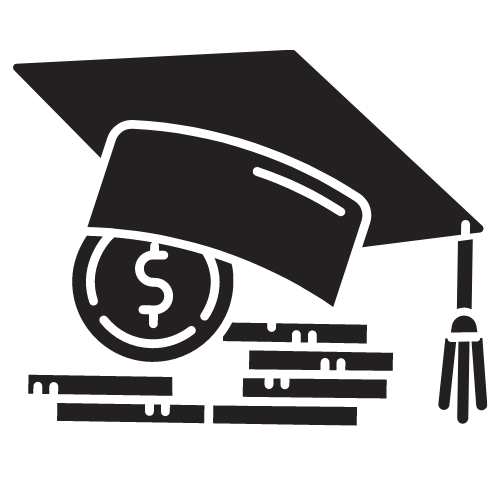
Course Fees:

Course Fees:
There are five available enrolment options to choose from for this course:
Fee for Service:
Certificate IV Travel and Tourism - $4950.00
Payment Structure for Courses over $1500.00
We make paying for your course simple and manageable.
Courses under $1,500: Pay upfront and in full at enrolment.
Courses over $1,500 A simple payment plan can arranged which will include a $1500 deposit on enrolment.
We also offer payment plans via Ezidebit direct debit, making it even easier to spread the cost of your course.
📌 Ezidebit terms, conditions, and fees apply. Full details will be provided during the enrolment process.
SIT40122 - Certificate IV Travel and Tourism
Course Description
If you love exploring new places and creating unforgettable experiences, the Certificate IV in Travel and Tourism is your ticket to a dynamic career in the industry. This course equips you with the skills to design travel packages, manage customer experiences, and coordinate tourism operations—all while staying ahead in this exciting, fast-paced field.
Learn from industry professionals, gain hands-on experience, and develop the confidence to thrive in travel agencies, tour companies, and destination management roles. Whether you're looking to step into leadership or start your own travel business, this qualification opens the door to a world of possibilities.
Your journey starts here—where will it take you?
What will you study?
In a Certificate IV in Travel and Tourism, you'll complete 19 units covering travel sales, customer service, itinerary planning, and tourism operations, equipping you with the skills to manage and deliver exceptional travel experiences.

Course Enrolment:
Anytime

Entry Requirements:
Nil

Course Duration:
12mths

Location:
ABHT are approved to deliver this course nationally via our online platform and can deliver this training face to face in the workplace throughout Metro & SE QLD.

Study Options:
Training can be delivered face to face in the workplace or in a traditional classroom environment. Students can also study within their own schedule using our online platform or combination of face-to-face and online training.

Study Pathways:
Diploma of Travel and Tourism Management
Certificate IV Travel and Tourism Training Plan
Travel and Tourism Industry Knowledge & Skills
SITTIND003 Source and use information on the tourism and travel industry
This unit describes the performance outcomes, skills and knowledge required to source and use current and emerging information on the tourism and travel industry. This includes industry structures, technology, laws and ethical issues specifically relevant to the tourism and travel industry. Tourism and travel personnel integrate this essential knowledge on a daily basis to work effectively in the industry. This unit applies to all tourism and travel sectors and people working at different levels. Managers use more formal research to attain specialised and comprehensive knowledge which supports product planning, marketing and strategic management activities. This is covered within other units of competency. This unit is not about having in-depth knowledge but focuses on the ability to source and interpret information relevant to day-to-day activities in order to maximise performance.
SITXFIN008 Interpret financial information
This unit describes the performance outcomes, skills and knowledge required to interpret financial information and reports used by organisations to monitor business performance and provide information on operational or departmental financial activities. The unit applies to all tourism, travel, hospitality and event sectors. It applies to those people who operate independently or with limited guidance from others. This includes supervisors and departmental managers. This unit does not include the skills required to produce reports for the overall operation of the department or whole organisation. These would be created by senior managers, financial specialists or accountants.
SITXFIN009 Manage finances within a budget
This unit describes the performance outcomes, skills and knowledge required to take responsibility for budget management where others may have developed the budget. It requires the ability to interpret budgetary requirements, allocate resources, monitor actual income and expenditure, and report on budgetary deviations.

SITTTVL001 Access and interpret product information
This unit describes the performance outcomes, skills and knowledge required to access product information about travel products to fulfil sales or operational needs. It requires the ability to identify sources of information and to interpret specific details of the products. The product can include international or domestic products sold by any travel organisation. The breadth and depth of product knowledge and its application will vary according to the industry sector, workplace and job role. This unit is not about having an in-depth knowledge of products, but focuses on the ability to source and interpret information. The unit mainly applies to frontline sales and operations personnel who operate with some level of independence and under limited supervision. It does, however, describe a fundamental operational function and those individuals who work with very little independence under close supervision would also use this skill. This includes travel consultants, inbound tour coordinators, reservations sales agents and owner-operators of small travel organisations.
SITTTVL002 Provide advice on international destinations
This unit describes the performance outcomes, skills and knowledge required to source and provide customer information and advice relating to international destinations and their features. It requires the ability to identify appropriate information sources and research destinations in order to develop and update a general destination knowledge base.International destinations and their features can include any sold by a travel organisation. Travel operators, such as travel agents and tour wholesalers, can specialise in one international destination or cover multiple destinations.The breadth and depth of destination knowledge required will vary according to the industry sector, workplace and job role. This unit is not about having an in-depth knowledge of every destination but focuses on the ability to collect and interpret destination information.
SITTTVL003 Provide advice on Australian destinations
This unit describes the performance outcomes, skills and knowledge required to source and provide customer information and advice relating to Australian destinations and their features. It requires the ability to identify appropriate information sources and research destinations in order to develop and update a general destination knowledge base. Domestic destinations and their features can include any sold by a travel organisation. Travel operators in Australia, such as travel agents, tour wholesalers and inbound tour operators, would cover multiple Australian destinations. Visitor information centres and some tour operators would specialise in one region. The breadth and depth of destination knowledge required will vary according to the industry sector, workplace and job role. This unit is not about having an in-depth knowledge of every destination but focuses on the ability to collect and interpret destination information. The unit applies to frontline sales and operations personnel who operate with some level of independence and under limited supervision. This includes visitor information officers, travel consultants, tour operations coordinators, inbound tour coordinators and reservations sales agents.
SITTTVL004 Sell tourism products or services
This unit describes the performance outcomes, skills and knowledge required to proactively sell tourism products and services. It requires the ability to identify specific customer needs, suggest a range of products to meet those needs, provide current and accurate product information and close the sale. The product can include any international or domestic product sold by any travel organisation. The organisation could be a principal (the supplier) or an agent selling products on behalf of the principal. The sale may be made for a single product or multiple products making up a complete package or itinerary. This unit applies to frontline sales or operations personnel who operate with some level of independence and under limited supervision. This includes travel consultants, inbound tour coordinators, reservations sales agents and owner-operators of small travel organisations. The skills in this unit must be applied in accordance with Commonwealth and State/Territory legislation, Australian/New Zealand standards and industry codes of practice. The sale of travel and tourism products is subject to specific regulations under several federal and state or territory pieces of legislation:personnel selling travel insurance to a client must meet the requirements of the Financial Services Reform Act (2001) inbound tour operators (ITOs), irrespective of their location, selling tours that operate within Queensland are subject to the Queensland Tourism Services Act (2003). They must register with the Queensland Office of Fair Trading. This law also applies to tour guides residing anywhere in Australia when working in Queensland and selling local products.
SITXCCS010 Provide visitor information
This unit describes the performance outcomes, skills and knowledge required to access general information on facilities, products and services available in the local area and to provide this to visitors.
The unit applies to frontline service personnel working in a range of tourism, travel, hospitality, events, entertainment and cultural contexts. Information is often provided face-to-face, but may be by telephone or other remote mechanisms.
It applies to frontline service personnel who routinely respond to visitor requests for general local area information. They may be working independently or with guidance from others in restaurants, hotels, wineries, attractions, entertainment venues, tour operations, visitor information centres and at tour desks.

People and Culture
SIRXOSM002 Maintain ethical and professional standards when using social media and online platforms
This unit describes the performance outcomes, skills and knowledge required to source information on, and work according to, a range of ethical and professional standards when using social media and online platforms for business purposes.This key skill underpins effective performance when utilising social media and online platforms for diverse purposes. It applies to individuals working at all levels from operational personnel through to managers.This unit applies to self-employed individuals, and owners and employees of any type of micro, small, medium or large organisation that utilises social media and online tools for customer engagement including commercial, not-for-profit and government organisations.
SITXHRM007 Coach others in job skills
This unit describes the performance outcomes, skills and knowledge required to provide on-the-job coaching to colleagues. It requires the ability to explain and demonstrate specific skills, knowledge and procedures and monitor the progress of colleagues until they are able to operate independently of the coach. The unit applies to experienced operational personnel and to supervisors and managers who informally train other people in new workplace skills and procedures. It applies to all tourism, travel, hospitality and event sectors.
SITXCCS015 Enhance customer service experiences
This unit describes the performance outcomes, skills and knowledge required to provide professional and personalised customer service experiences. It requires the ability to determine and meet customer preferences, develop customer relationships, respond to difficult service situations and take responsibility for resolving complaints. The unit applies to those who deal directly with customers on a daily basis and who operate independently or with limited guidance from others. It includes senior frontline sales personnel, supervisors and managers who use discretion and judgement to provide quality customer service experiences. This includes individuals working in a range of tourism, travel, hospitality and events contexts.
SITXCOM007 Show social and cultural sensitivity
This unit describes the performance outcomes, skills and knowledge required to be socially aware when serving customers and working with colleagues. It requires the ability to communicate with people from a range of social and cultural groups with respect and sensitivity, and to address cross-cultural misunderstandings should they arise. The unit applies to all tourism, travel, hospitality and event sectors. All personnel at all levels use this skill in the workplace during the course of their daily activities.
SITXCOM010 Manage conflict
This unit describes the performance outcomes, skills and knowledge required to resolve complex or escalated complaints and disputes with internal and external customers and colleagues. It requires the ability to use effective conflict resolution techniques and communication skills to manage conflict and develop solutions. It does not cover formal negotiation, counselling or mediation. The unit applies to all tourism, travel, hospitality and event sectors. The unit applies mainly to senior operational personnel, supervisors and managers who operate with some level of independence and use discretion and judgement to resolve conflicts.
SIRXCEG008 Manage disrespectful, aggressive or abusive customers
This unit describes the performance outcomes, skills and knowledge required to appropriately and safely manage customers who are disrespectful, aggressive or abusive.

SITXHRM008 Roster staff
This unit describes the performance outcomes, skills and knowledge required to develop, administer and communicate staff rosters. It requires the ability to plan rosters according to industrial provisions, operational efficiency requirements, and within wage budgets.
This unit applies to individuals responsible for developing staff rosters for situations involving potentially large numbers of staff working across a range of different service periods or shifts. It does not apply to small office environments.

SITXHRM009 Lead and manage people
This unit describes the performance outcomes, skills and knowledge required to lead and manage people individually and in teams, and support and encourage their commitment to the organisation. It requires the ability to lead by example and manage performance through effective leadership.The unit applies to individuals who operate independently and are responsible for leading and motivating people and teams. This includes supervisors, and operational and senior managers.

Travel and Tourism Operations
SITTTVL006 Book tourism products and process documentation
This unit describes the performance outcomes, skills and knowledge required to make and administer customer bookings for products and services. It requires the ability to administer all bookings from identification of customer booking requirements, through to finalisation and issue of documentation. This may include determining availability of the product or service, offering alternatives, accurately recording the booking details, interpreting all documentation requirements and preparing and despatching documents within designated deadlines. The product or service can include any international or domestic product or service sold by any travel organisation. This includes airlines, cruise lines, vehicle rental companies, hotels, motels, bed and breakfasts or other accommodation providers, tour operators of any type, outbound tour wholesalers, and attractions and theme parks. The unit applies to frontline operations personnel who operate with some level of independence and under limited supervision. This includes travel consultants, cruise consultants, inbound tour coordinators, reservation sales agents and owner-operators of small travel organisations.
SITTTVL005 Prepare customer quotations
This unit describes the performance outcomes, skills and knowledge required to calculate the costs of products and services and to present quotations to customers. It requires the ability to provide quotations for products and services where business pricing has already been determined. The unit applies to any travel industry organisation and quotations can be for any international or domestic product. The organisation could be a principal (the supplier) or an agent quoting on products and services on behalf of the principal. It applies to frontline sales or operations personnel who operate with some level of independence and under limited supervision. This includes travel consultants, inbound tour coordinators, reservations sales agents, and owner-operators of small travel organisations.
Work Health and Safety
SITXWHS007 Implement and monitor work health and safety practices
This unit describes the performance outcomes, skills and knowledge required to implement predetermined work health, safety and security practices designed, at management level, to ensure a safe workplace. It requires the ability to monitor safe work practices and coordinate consultative arrangements, risk assessments, work health and safety training, and the maintenance of records. The unit applies to all tourism, travel, hospitality and event sectors and to any small, medium or large organisation. It applies to those people who operate independently or with limited guidance from others. This includes supervisors and departmental managers. This unit incorporates the requirement, under state and territory work health and safety (WHS) legislation, for businesses to take a systematic approach to managing the safety of their workers and anyone else in the workplace.


Course Fees:
Fee for Service:
Certificate IV Travel and Tourism - $4950.00
Payment Structure for Courses over $1500.00
We make paying for your course simple and manageable.
Courses under $1,500: Pay upfront and in full at enrolment.
Courses over $1,500 A simple payment plan can arranged which will include a $1500 deposit on enrolment.
We also offer payment plans via Ezidebit direct debit, making it even easier to spread the cost of your course.
📌 Ezidebit terms, conditions, and fees apply. Full details will be provided during the enrolment process.
Career Pathway
Career Pathway
Graduates of the Certificate IV in Travel and Tourism gain the skills to coordinate travel services, manage customer experiences, and support business operations in the tourism industry. This qualification also opens pathways to leadership opportunities or further study in tourism and business management.
Graduates of the Certificate IV in Travel and Tourism gain the skills to coordinate travel services, manage customer experiences, and support business operations in the tourism industry. This qualification also opens pathways to leadership opportunities or further study in tourism and business management.
Study Pathway
Study Pathway
Take your career to the next level. Use your Certificate IV in Travel and Tourism as a pathway to higher education — graduates are eligible to enrol in these next-level VET qualifications:
Take your career to the next levels
Use your Certificate III in Hospitality as a pathway to higher education — graduates are eligible to enrol in these next-level VET qualifications:
Ready to enrol?
Ready to enrol?
Register your interest
Fill in our expression of interest form here or call (07) 3117 9722
Eligibility Check
We will check your are eligible for Government funded training.
Enrolment Call
We call you to discuss your enrolment, eligibility for funding and training plan.
We will also confirm course costs and arrange payment or a payment plan
Online Enrolment Form
We will send you the link to our online enrolment, where you can upload your ID and submit all the details required.


Get in touch with us
Ready to connect with us?
We’re just a message away and can’t wait to hear from you!
Whether you have questions, need assistance, or just want to stay in touch, reach out and send us a message through our contact form, give us a call, or drop us an email. Our friendly team is here to help and make your experience awesome. So don’t be shy—let’s get the conversation started! 📞💌✨
Send us a message
More
Follow us
Contact Us
(07) 3117 9722
Level 2. 14 Smith Street
Mooloolaba QLD 4557
Monday to Friday
8.30am to 4.30pm
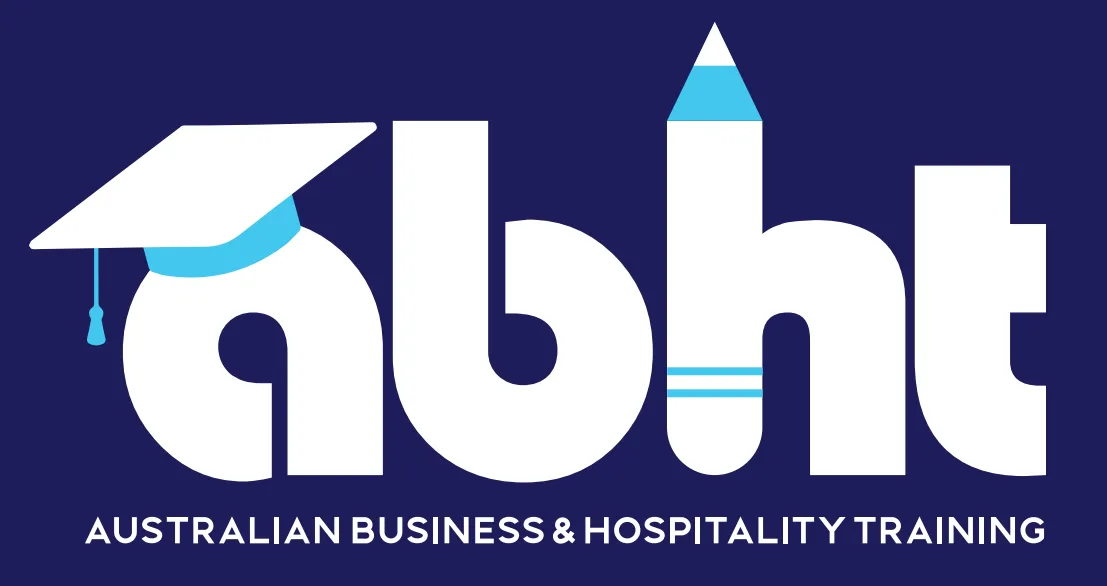
Acknowledgement of Country
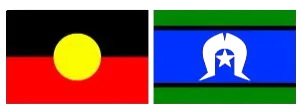
In the spirit of reconciliation ABHT acknowledges the Traditional Custodians of Country throughout Australia and their connections to land, sea and community.
We pay our respect to their Elders past and present and extend that respect to all Aboriginal and Torres Strait Islander peoples today.
© Copyright 2026. Australian Business & Hospitality Training. All rights reserved. RTO#31983
